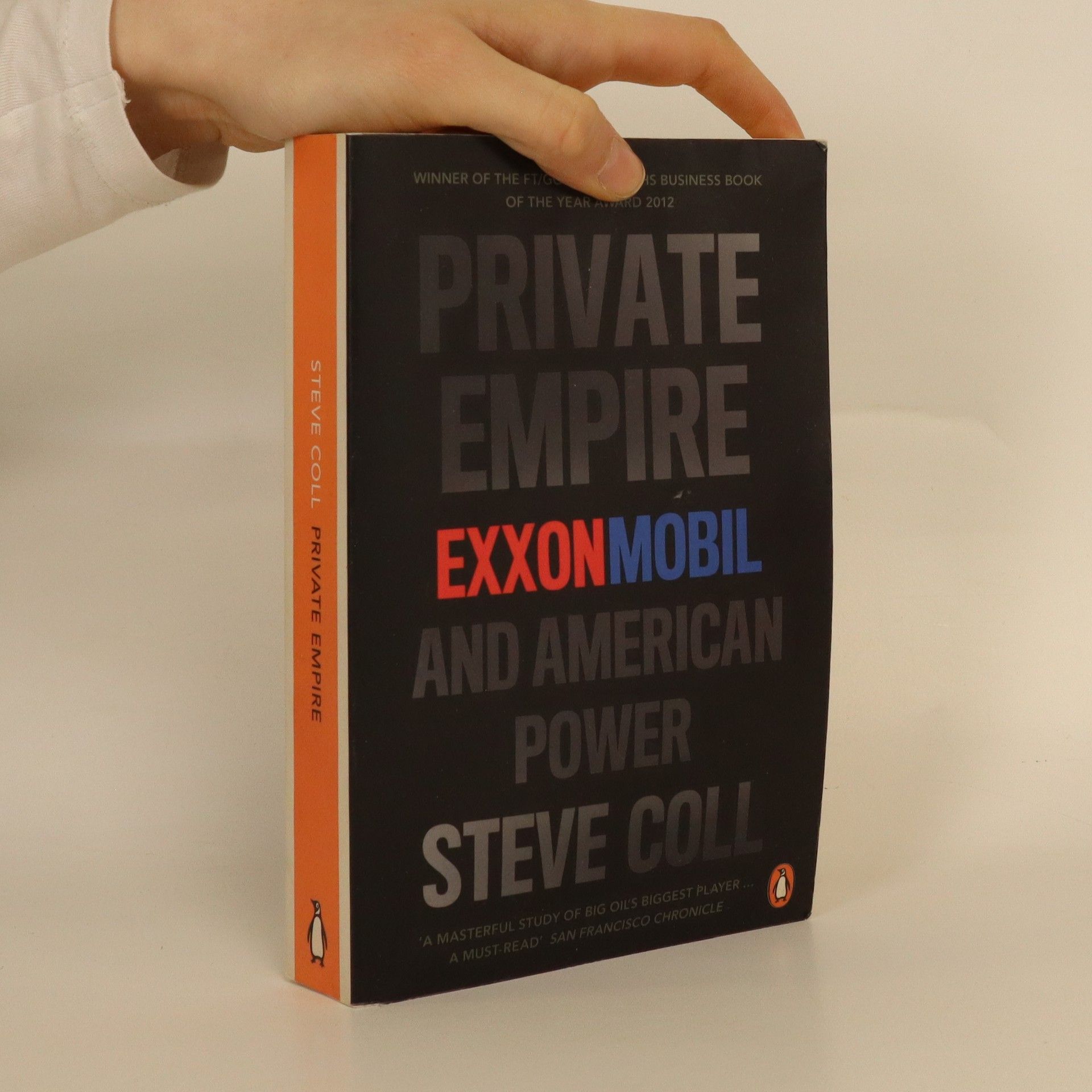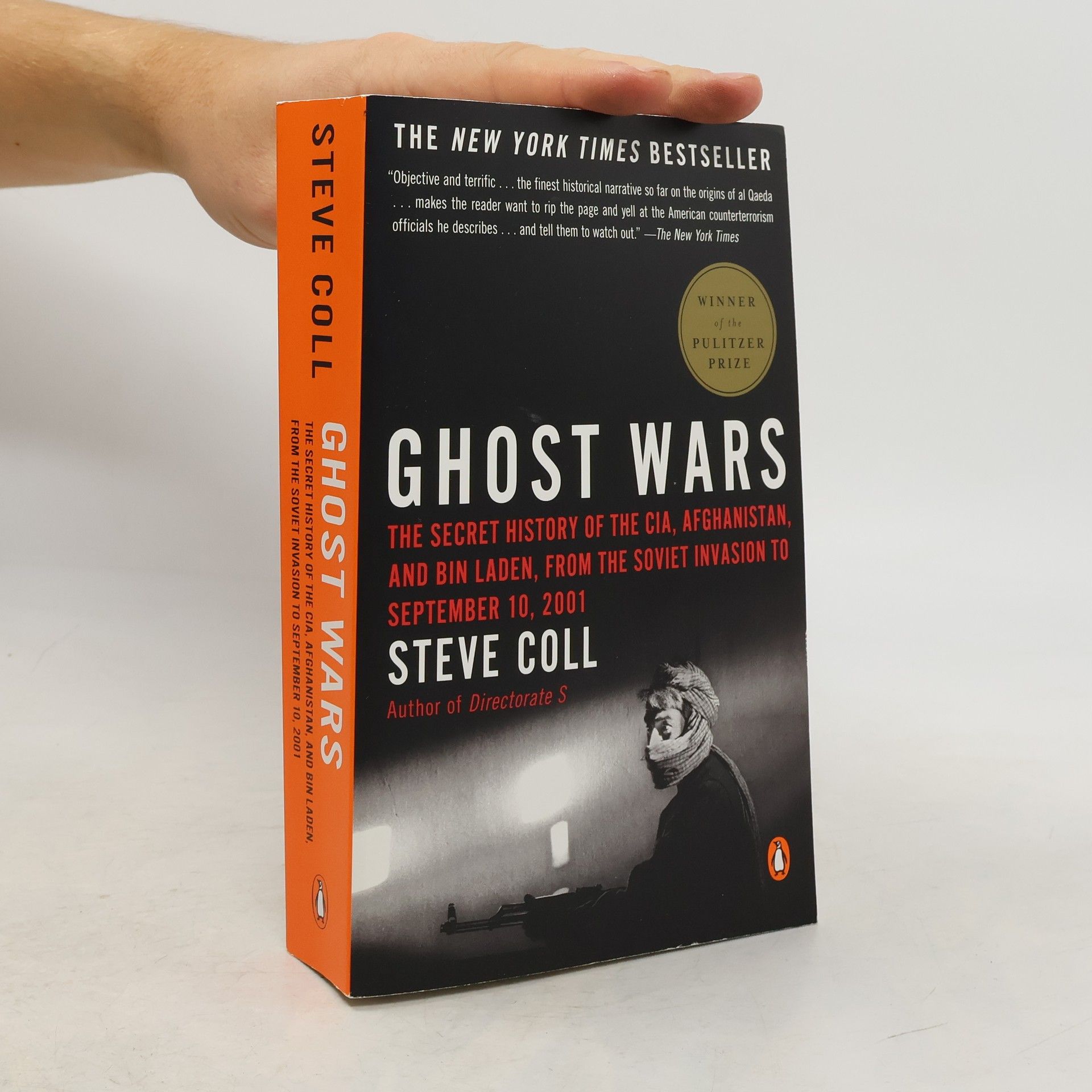The Achilles Trap
Saddam Hussein, the United States and the Middle East, 1979-2003
- 576 Seiten
- 21 Lesestunden
Steve Coll ist bekannt für seine scharfsinnigen Analysen wichtiger Ereignisse und Institutionen im amerikanischen und internationalen Kontext. Seine journalistische Laufbahn als Auslandskorrespondent und leitender Redakteur hat seine Fähigkeit geschärft, komplexe Wahrheiten aufzudecken. Coll konzentriert sich auf Themen wie Unternehmensmacht, internationale Beziehungen und Nachrichtendienste, wobei seine Arbeit durch tiefgehende Recherche und einen klaren, fesselnden Stil besticht. Sein investigativer Ansatz und die Liebe zum Detail ziehen den Leser in die Materie.






Saddam Hussein, the United States and the Middle East, 1979-2003
From bestselling and Pulitzer Prize-winning author Steve Coll comes a definitive exploration of the complex relationship between the United States and Saddam Hussein, revealing how human error, cultural miscommunication, and hubris culminated in a costly geopolitical conflict. The 2003 invasion of Iraq was justified by claims of weapons of mass destruction, but their absence forced a reevaluation of the political and intelligence failures that preceded the war and the ensuing civil strife. A key question remains: why did Saddam create the illusion of possessing dangerous weapons, risking his long-held power? Coll meticulously examines the power dynamics and geopolitics that led to America’s disastrous engagement with Iraq, detailing the miscalculations throughout its decades-long relationship with Saddam. He traces Saddam’s ascent to power in 1979 and the inception of Iraq’s secret nuclear program, offering insights into his motives through the perspectives of his inner circle. The narrative brings to life the diplomats, scientists, and military leaders who were compelled to follow a man responsible for immense suffering and violence. Utilizing unpublished sources, interviews, and Saddam’s own transcripts, Coll constructs a comprehensive portrait of a leader who perceived the world as a threat. This significant work highlights how the corruptions of power and diplomatic deception on both sides resulted in avoidable statecraf
Spellbinding ... a magisterial account of the great tragedy of our age ... it is a classic' Evening Standard. 'In the finest traditions of American investigative journalism' The Times. 'Spectacular ... makes Bourne movies pale in comparison' Financial Times. From the Pulitzer Prize-winning author of Ghost Wars, this narrative details America's grim involvement in Afghanistan from 2001 to 2016. Following the shock of 9/11, the C.I.A. urgently sought to eliminate Bin Laden and his associates, leveraging its prior experience in Afghanistan, where it had collaborated with the Taliban against the Soviet Union. A complex web of assumptions, past alliances, and resentments was reignited. While the initial invasion appeared swift and effective, Bin Laden's escape, alongside much of the Taliban leadership, exposed a catastrophic failure to define NATO's mission in a challenging, impoverished nation. Central to the issue was 'Directorate S', a covert branch of the Pakistani state with its own agenda regarding the Taliban and regional power dynamics involving Pakistan, India, and China, which anticipated a quick U.S. withdrawal. This remarkable account reveals the profound consequences of flawed foreign policy decisions and the tragic loss of lives that ensued.
The oil giant ExxonMobil makes more money annually than the GDP of most countries, yet to outsiders it is a mystery. Here, Steve Coll tells the truth about the world's most powerful and shadowy company, revealing a story of dictators, oligarchs, civil war, blackmail, secrecy and ruthlessness.
Two-time Pulitzer Prize winner Coll goes deep inside ExxonMobil Corp, the largest and most powerful private corporation in the United States, revealing the true extent of its political and economic power.
Die erste umfassende Darstellung der Familie, aus der Osama Bin Laden stammt. Brillant recherchiert Woher kommt Osama Bin Laden? Der zweifache Pulitzer-Preisträger Steve Coll schildert mit zahlreichen bisher unbekannten Details Aufstieg, Leben und Einfluss der Familie Bin Laden, aus deren Mitte der meistgesuchte Terrorist der Welt stammt. Aus einfachen Verhältnissen im Jemen kommend wurde sie in Saudi-Arabien zu einer der reichsten Familien des Landes mit globalen Beziehungen in Wirtschaft und Politik. Bis zum 11. September 2001. Eine spannende Geschichte, die die Zerrissenheit der arabischen Welt zwischen Tradition und Moderne zeigt. Zeigt exemplarisch die Zerrissenheit und Widersprüchlichkeit der arabischen Welt. Der Autor wurde mehrfach mit dem Pulitzer-Preis ausgezeichnet.
From the managing editor of "The Washington Post" comes this news-breaking account of the CIA's involvement in the covert wars in Afghanistan that fueled Islamic militancy and gave rise to bin Laden's al Qaeda.
The news-breaking book that has sent shockwaves through the Bush White House, Ghost Wars is the most accurate and revealing account yet of the CIA's secret involvement in al-Qaeda's evolution. It won the Pulitzer Prize in 2005.Prize-winning journalist Steve Coll has spent years reporting from the Middle East, accessed previously classified government files and interviewed senior US officials and foreign spymasters. Here he gives the full inside story of the CIA's covert funding of an Islamic jihad against Soviet forces in Afghanistan, explores how this sowed the seeds of Bin Laden's rise, traces how he built his global network and brings to life the dramatic battles within the US government over national security. Above all, he lays bare American intelligence's continual failure to grasp the rising threat of terrorism in the years leading to 9/11 - and its devastating consequences.